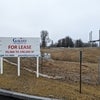SBA loans get to the heart of business matters
By Christina P. O’Neill and Meaghan O’Rourke
Five years ago, Richard Lussier had a strong business plan but no proven success in his Sterling-based startup, Mulligan’s Mini-Golf. He was turned down for a loan twice before obtaining an SBA loan from Enterprise Bank and Trust Co. to acquire the property and construct the course. The first two banks didn’t even mention SBA lending. Today, the business, which Lussier co-owns with his wife Dawn, has grown significantly, but without the SBA loan, it wouldn’t be here, Lussier says.
When Fred Simmons Sr., principal of Milford-based Simmons Motorsports Group Inc., needed a small loan for his performance and road auto customizing business, the first banks he approached suggested taking out a home equity loan because the amount he was seeking – $50,000 – was relatively small. But he persisted, and was able to secure an SBA loan from TD Banknorth’s Milford office.Brian Mannila and James Kowaleski of J&J Power Sports Inc., a Worcester firm that sells Harley Davidson motorcyle parts on the Internet, used an SBA Community Express program loan from TD Banknorth to finance the growth of their new business. The $100,000 loan improved the business’ buying power –critically important for a small business which, when faced with a manufacturer’s closeout sale, must act quickly.
A good year for SBA lending
While the U.S. Small Business Administration is having a difficult year (see sidebar), local SBA lending activity is flourishing in Massachusetts. Startup businesses that by most bank criteria are considered high-risk because of their lack of a track record can benefit from SBA loans, which are guaranteed by the federal government, reducing the risk exposure of the lender. The SBA, which is cutting staff and consolidating offices, has been trending in recent years toward loans that need less documentation (and hence, less staff processing time) and carry a lower guarantee. But the smaller programs have been adopted enthusiastically by small businesses for whom time is money.
In the government’s fiscal 2005, which runs from Oct. 1 through Sept. 30, Massachusetts small businesses obtained 3,148 SBA loans. This fiscal year looks good, too. From Oct. 1, 2005 through May 31, 2006, a total of 1,887 SBA loans have been granted in Massachusetts.
Citizens Bank Massachusetts has increased its SBA loan activity in Worcester County by 15 percent during the last eight months, compared to the same time frame last year, reports Gary Heidel, senior vice president and national director of the Small Business Government Program Services at Citizens Financial Group. The bank has also provided 54 percent more in credit to area companies seeking loans of less than $1 million during the last eight months.
TD Banknorth is the region’s first lender to offer the SBA Community Express program, which J&J Power Sports Inc. used to grow its business. This program, which targets startups with streamlined and expedited loans and includes management and technical assistance, lends in amounts from $5,000 to $250,000, with the average loan amount being $150,000. It’s offering the program to business customers which have been in operation two years or more, and to those in operation less than two years that have a business plan produced with the help of a Technical Assistance Provider. The Martin Luther King Business Empowerment Center played that role for J&J Power Sports.
Higher guarantee, lower risk
More traditional SBA programs can be used for endeavors that most commercial lenders might find too risky to support. In one instance, a North County business plans to use a 7a SBA loan to buy two other struggling businesses in the same industry. "Most banks, including us, would not look at that on our own," says Michael Hewitt, executive vice president at Fitchburg-based Fidelity Bank, which is preparing the loan for the customer. He declines to name the business, citing confidentiality reasons. But, he says, if the loan is approved by the SBA, three struggling businesses will merge into a single, stronger entity. The consolidated firm plans to pool assets and sell off redundant equipment. While there would be some job cuts, they would be far less than those that would occur if the separate companies failed. The 75 percent federal guarantee makes the proposition less risky for Fidelity Bank.
The SBA’s Express Loan program and Export Express program offer a lesser federal guarantee but less paperwork, as well. Documentation is processed by the lender, not the SBA. The federal guarantee is 50 percent of the loan amount. "The whole idea behind the Express program is to speed things up," says Brian Bullock, senior vice president of commercial lending at Enterprise Bank. The traditional 7a program can take three or four weeks to process, while the Express program takes two business days to a week.
Export Express, also a relatively new program, is designed to meet export finance needs for small business. Candidate businesses must be in operation for at least 12 months and must demonstrate that loan proceeds will be used to enter new export markets or expand existing ones. A one- or two-page business plan is sufficient documentation, Bullock says. The SBA’s Export Express guarantees loans of up to $150,000 at 85 percent, and loans of more than that amount for 75 percent, to a maximum loan amount of $250,000.
"The SBA loves exporters," says TD Banknorth Massachusetts’ Anne Cerami, senior vice president of SBA lending, based out of the bank’s Burlington office. She says Express loans probably represent the majority of SBA loans the bank does. The lower guarantee — 50 percent instead of 75 to 85 percent — results in lower fees to the borrower, because the SBA bases its fee on the guarantee amount. The lending institution gets to use its own standard underwriting policies and documentation and can process the loan electronically. "Some of those people are struggling for financing," says Cerami. If they know about the Export Express program, they can notify their SBA lending bank, and chances are they will have access to it, she says.
The 504 program is a longer-range program, targeting land, building and capital equipment acquisition, and construction or renovation of owner-occupied properties. The Worcester Business Development Corp. is a licensed agent company of the SBA, acting as a certified development company for the SBA’s 504 loan program and is co-licensed to administer the 504 Loan Program in Worcester County. The 504 program requires a minimal down payment of 10 percent; terms are fixed-rate and can run as long as 20 years. In April, the WBDC completed placement of more than $7 million in financing for The Goddard School and the Fairfield Inn & Suites by Marriott. Other businesses which have benefited from the WBDC’s participation in the 504 loan program in recent years include Oxford-based Swissturn/ USA, which borrowed $500,000 from the SBA to expand its operations from 11,000 square feet to 19,000 square feet. It has grown sales by more than 50 percent, from about $2 million to about $3 million, has added 6 jobs since 2003 and is looking to hire a few more people. Flagship Bank partnered on the loan. Other beneficiaries include Spencer-based Klem’s, which expanded its yard equipment store from 20,000 square feet to 55,000 square feet and added new product categories.
The SBA as partner
The trend toward faster processing signals a change in the way the SBA does business. TD Banknorth Massachusetts’ Cerami says that government cutbacks have downsized SBA staff. That’s good for business owners because it frees up the lenders to do what they do best, while the government steps back into a partnering role. "In the old days, they were the loan officer," Cerami says, but now, the SBA emphasizes advocacy, training, and outreach to small business. "They’re becoming more marketeers than lenders."
Christina P. O’Neill can be reached at coneill@wbjournal.com
SIDEBAR: SBA: Turmoil at the top
To read the barrage of press releases from the American Small Business League, you’d think the SBA can’t do anything right. The association alleges that the SBA, among other things, has devised loophole-ridden contract granting protocols that would allow venture capital firms with a controlling interest of 51 percent in a small R&D company to be eligible for small business status. It would also allegedly allow franchisers to use their franchisees fronts to illegally receive federal small business contracts.
The ASBL raises the specter of Fortune 1000 companies setting up divisions as franchises to receive the federal funding. The ASBL also blasts the Bush administration for allegedly stalling implementation of a procurement process for woman-owned businesses.
ASBL has filed a series of lawsuits against the SBA to make the agency provide names of companies that have been coded as small businesses for the purpose of federal contracting. ASBL charges that corporate giants such as Northrop Grumman, Raytheon and Titan are on that list.
SBA Administrator Hector Barreto stepped down this month, replaced by Steven Preston, former executive vice president of ServiceMaster. But the ASBL raises questions about Preston’s qualifications for the job, because Preston has never run a small business. ASBL also voices concern about the franchisee issue.
Lloyd Chapman, the president of ASBL, is claiming that the current administration is gearing up get rid of the SBA all together. He cites, in a January interview with BusinessWeek, that the Bush administration has not only cut the SBA budget in half but has also tried to adjust policy so that some of the biggest companies in the country could be considered small businesses.
But ASBL isn’t the only entity that’s waxing the SBA’s tail. In 2003, the Government Accounting Office conducted an investigation finding that Barreto had allowed the reporting of billions of dollars in contracts to large companies as small-business awards, and the SBA was subsequently forced to remove the names of 600 large businesses from its PRO-NET database, the SBA’s main directory for small business contracts. And a 2005 AP story reported that the 9/11 Disaster Recovery loan program had granted less than 11 percent of its proceeds to firms based in New York.
Preston was sworn in earlier this month as Barreto’s successor.
C.P.O. and M.O.









0 Comments